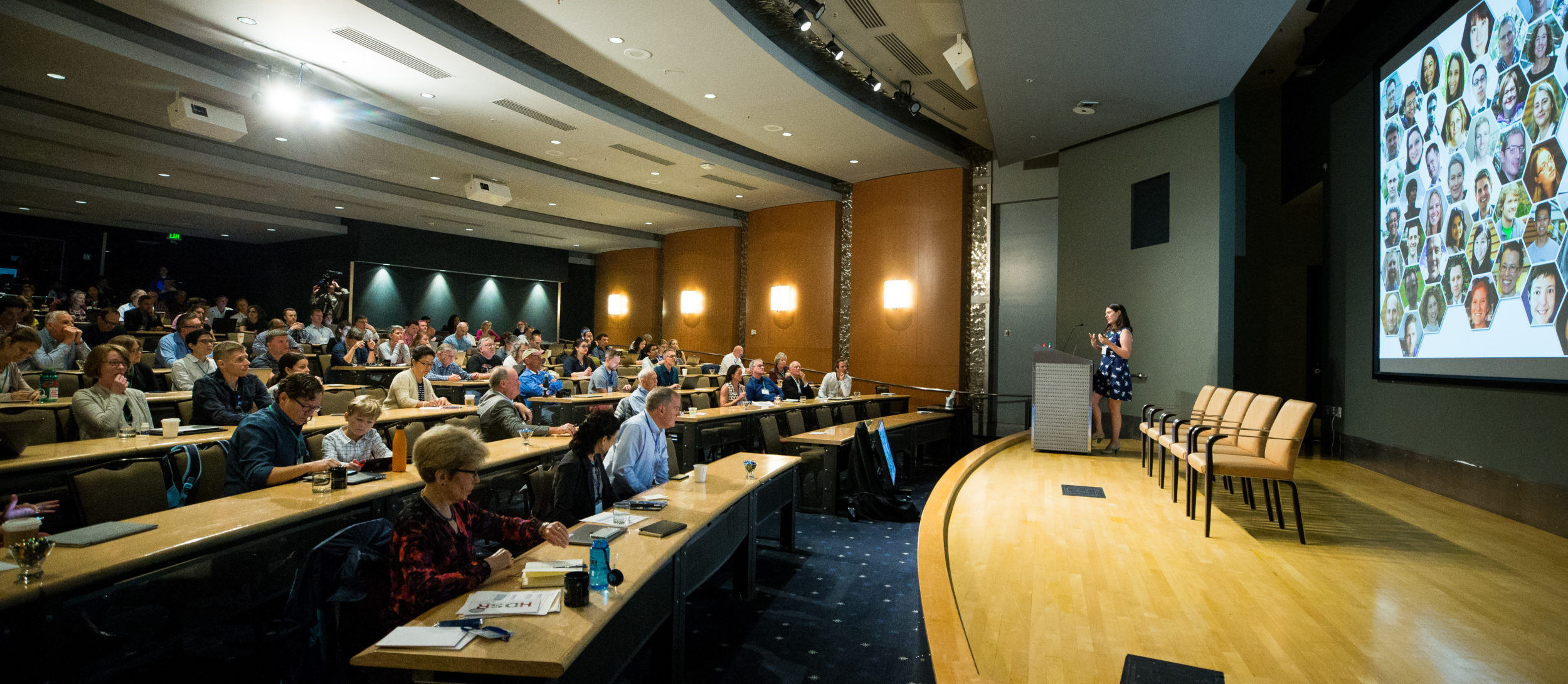Sage Bionetworks’ events are community events intended for networking and collaboration and learning.
We value the participation of every member of the scientific community and want all attendees to have an enjoyable and fulfilling experience. Accordingly, all attendees are expected to show respect and courtesy to other attendees throughout the event.
To make clear what is expected, everyone taking part in Sage Bionetworks’ events and discussions—instructors, helpers, organizers, and learners—is required to conform to the following Code of Conduct. Organizers will enforce this code throughout events. You may contact us directly by email at assembly@sagebase.org. All communication will be treated as confidential.
Code of Conduct:
- Sage Bionetworks is dedicated to providing a **harassment-free learning experience for everyone, regardless of gender, sexual orientation, disability, physical appearance, body size, race, religion, or choice of text editor. We do not tolerate harassment of participants in any form.
- All communication should be appropriate for a professional audience including people of many different backgrounds. Sexual language and imagery is not appropriate for any event.
- Be kind to others. Do not insult or put down other attendees.
- Behave professionally. Remember that harassment and sexist, racist, or exclusionary jokes are not appropriate and can be offensive to those around you. Words matter; be mindful of the words you choose.
- Attendees asked to stop any harassing behavior are expected to comply immediately. Those who violate the Code of Conduct may be asked to leave the event at the sole discretion of the conference organizers, without a refund of any charge that may have been levied.
- Attendees seeking help with a violation can contact any of the organizers independently or through the registration desk.
Thank you for helping us make this a welcoming, friendly event for all.
** Harassment includes offensive verbal comments related to gender, sexual orientation, disability, physical appearance, body size, race, religion, sexual images in public spaces, deliberate intimidation, stalking, following, harassing photography or recording, sustained disruption of talks or other events, inappropriate physical contact, and unwelcome sexual attention.
